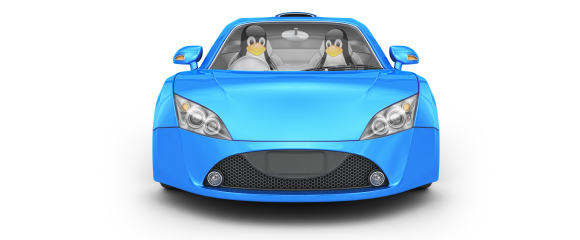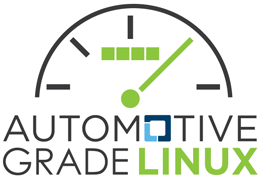Linux Enters the Car Industry Autobahn

Linux, one of the most popular operating systems used by affordable hosting providers, is making its presence felt in the automotive industry. Linux is known for its exceptional services as an open source platform, and if it is high-powered enough to run web hosting servers, there’s no doubt it can generate high performance levels in computerized car systems. Who knows, one day we could end up with driverless cars, and possibly flying cars?
The Linux Foundation promotes, protects and advances Linux projects as well as supporting the works of Linux creator Linus Trovalds. One of its projects throws a hat in the car industry ring with the creation of the Automotive Grade Linux Work group (AGLW) in London.
 “The Automotive Grade Linux Work group will work with the Tizen [Linux OS] project as the reference distribution optimized for a broad set of automotive applications ranging from Instrumentation Cluster to In-Vehicle-Infotainment (IVI) and more,” said the Linux Foundation, “The Linux Foundation will host this effort, providing a neutral environment for collaboration among the Linux kernel community, other open source software communities and the automotive industry.”
“The Automotive Grade Linux Work group will work with the Tizen [Linux OS] project as the reference distribution optimized for a broad set of automotive applications ranging from Instrumentation Cluster to In-Vehicle-Infotainment (IVI) and more,” said the Linux Foundation, “The Linux Foundation will host this effort, providing a neutral environment for collaboration among the Linux kernel community, other open source software communities and the automotive industry.”
This is a huge shift for both Linux and the automotive industry, however, that’s not all. The project received support from major brands such as Fujitsu, Intel, Jaguar Land Rover, Nissan, NVIDIA, Samsung, and Toyota; along with Tizen, the Linux-based platform is backed up by Samsung and Intel.
The Linux Foundation is not exactly a pioneer in this field. We have already seen the “car of the future” coming out of Honda and Ford R. & D. labs. However, the brand is shifting its gears to a wider perspective of development and to impart standards that will produce exceptional products and services.
Jo Best of ZDNet mentioned, “The aim of the work group, according to Jim Zemlin, executive director at The Linux Foundation, is to use the Tizen OS ‘to create a Debian or Fedora-like project for the automotive industry. Like those community distributions, the Automotive Grade Linux Work group will rapidly feed cutting-edge technologies to automakers and their partners who can build Linux-based products for the newest cars.’”
The members of the group will work together on Linux-based standards for devices and services to consume a range of open-source applications such as in-vehicle infotainment and digital dashboards that feature different gauges to monitor distance, water levels and car diagnostics.
The work group is open for further collaboration of the Linux kernel community, open source software communities and automotive industries to meet needs of the customers more effectively and efficiently.
